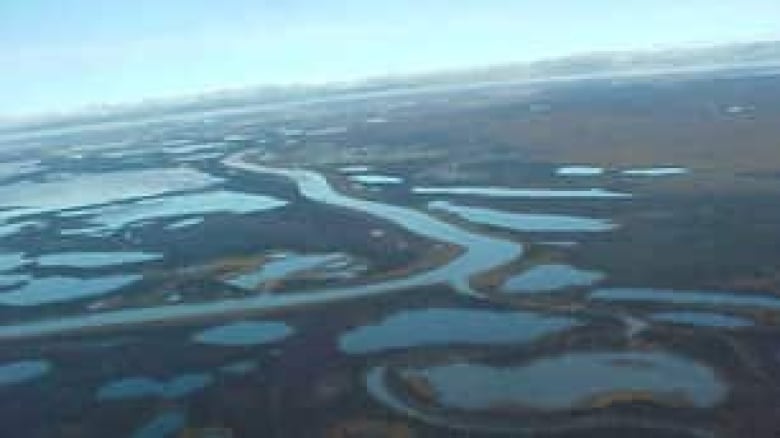Environmental panel's demands could kill Mackenzie project: Imperial
An environmental review panel's recommendation toimpose noise limits on any Mackenzie Valley pipeline facilities built inside a bird sanctuary could scuttle the $16.2-billion project, its backers have told the National Energy Board.
Calgary-based Imperial Oil the leader of the consortiumthat wants to build the natural gaspipeline said it and its partners might not be able to conform to the noiserestrictions recommended by the panelfor facilitiesbuilt within theKendall Island Bird Sanctuary.

The 623-square-kilometre sanctuary, which is atthe northern tip of the Mackenzie River Delta,is an internationally known migratory bird nesting ground.
It also contains 4.8 trillion cubic feet of natural gas in twofields about two thirds of the gas intended to fill the Mackenzie Valley pipeline.
The consortium wants to run smallerpipelines through the sanctuary to gather gas tofeed into the main Mackenzie Valley pipeline as well as buildproduction facilities there. It has said itswork will not have a significant impact on the area.
The panel recommended that noise emitted by facilities built on sanctuaryland be nogreater than 50 decibels within 300 metres of the fence line around the gas processing plants.
To make this a condition of any approvals for facilities in the sanctuary, Imperial said, "would have the potential effect of preventing development of both the Taglu and Niglintgak anchor fields, and, therefore, the entire Mackenzie gas project.
In a 15-page letter to the NEB Thursday, Imperial Oil said the board should reject several recommendations by the joint review panel.
Recommendations 'unwieldy,' 'not practical'
Among the other recommendations with which Imperial took issue are those requiring the pipeline consortium to seek approval for certain activities during construction such as waste materialincineration from agencies or communitiesthat don't now have regulatory authority over those activities, such as the territorial government or Environment Canada. The backers have promised to consult with those agencies.
In addition, Imperial disagreed with other recommendations that require proponents to disclose all details of intended work before construction begins. The company said it would be "unwieldy," with different phases "being constructed at different locations, at different times, over four years.
"It is not practical," Imperial said, "to expect that all plans, manuals and specifications for all construction activities at all locations will be made available before the first right-of-way or site preparation activity begins."
Another recommendation would require companies to file assessments about the effects of construction on permafrost before the pipeline trench is dug. The consortium said there would not be enough time in the up to eight months from when final data is collected after a site is cleared to analyze that information before the beginning of trenching.
Imperial'spartners include Royal Dutch Shell Plc., ConocoPhillips, Exxon Mobil Corp. and Aboriginal Pipeline Group.
The joint review panel conditionally approved the 1,220 kilometre-long natural gas pipeline on Dec 30. It would carry 800 million cubic feet a day of natural gas from the Beaufort Sea, through the Northwest Territories,and connect with an existing pipeline system in Alberta.
Theenergy boardplans to hear final arguments beginning April 12 in Yellowknife before making its decision on whether to allow the project to go ahead.












_(720p).jpg)


 OFFICIAL HD MUSIC VIDEO.jpg)
.jpg)



























































































